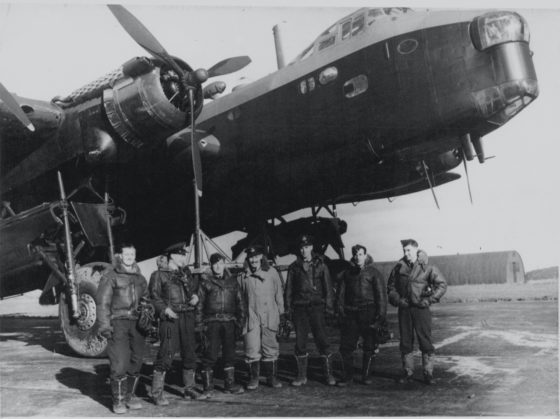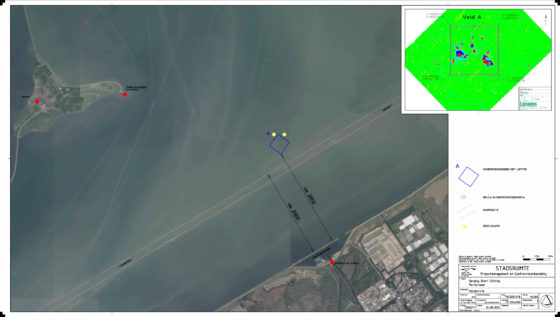Work starts on recovering British bomber from bottom of Dutch lake


An operation to recover a wartime bomber from the bottom of a lake near Amsterdam is beginning this week following a 10-year campaign by families.
The BK716 Short Stirling bomber was shot down on March 29, 1943, on its way home from a raid over Berlin, and ditched in the Markermeer. It was based at RAF Downham Market in Norfolk.
The remains of all seven crew – five British RAF airmen and two members of the Royal Canadian Air Force – are still believed to be in the water.
The first pieces of wreckage were discovered in December 2008 when a boat stranded in the Markermeer pulled up a piece of landing gear with its anchor. Over the next few weeks divers found several other pieces strewn over a large area, including a faded aluminium panel with its serial number.
The operation, which is expected to take around six weeks, is being carried out by the Ministry of Defence, including bomb disposal experts and army and air force technicians, together with with private contractor Leemans Speciaalwerken and Almere city council.

The plane is one of the first to be recovered under the Dutch government’s National Aircraft Wreckage Recovery Programme, which focuses on around 30 crash sites where human remains are most likely to be found.
Finance
The Dutch state is financing the recovery programme in full, unlike regular operations where the local authority is liable for 30% of the cost. The defence ministry carries out its share of the work pro bono.
For several years the plane was believed to be a different Short Stirling bomber, the BK710, after forensic experts misidentified the serial number on the aluminium panel.
The relatives of the BK710 crew were contacted by the volunteer research organisation Aircraft Recovery Group and petitioned politicians in the UK and the Netherlands to recover the aircraft from the water.
Monument
A monument to the lost airmen was erected on Marken island, north of Amsterdam. The BK710, which was shot down in May 1943, is now thought to have ended up in the North Sea off the coast of Texel.
Johan Graas, of the Aircraft Recovery Group, visited the families of the BK710 crew last year to tell them of the mistake. ‘It wasn’t a nice job: the news was shocking for them,’ he said.
‘But their responses weren’t as bad as I expected. They said: you can’t change history and other families will be glad that the BK716 has been found.’
Thank you for donating to DutchNews.nl.
We could not provide the Dutch News service, and keep it free of charge, without the generous support of our readers. Your donations allow us to report on issues you tell us matter, and provide you with a summary of the most important Dutch news each day.
Make a donation